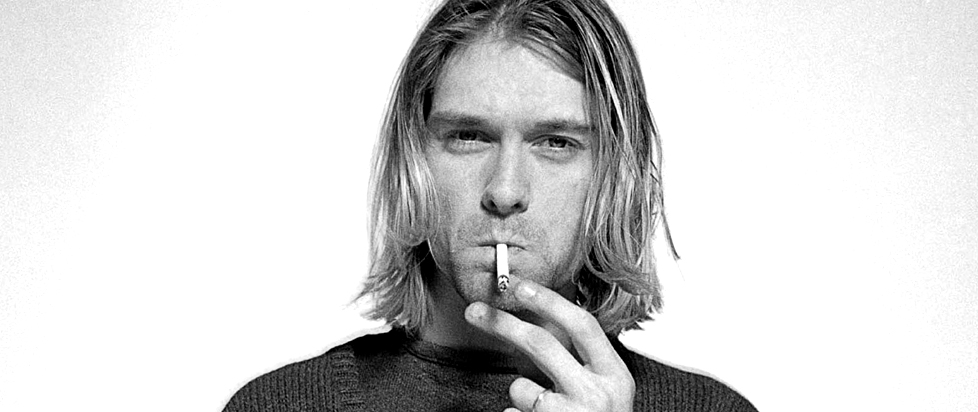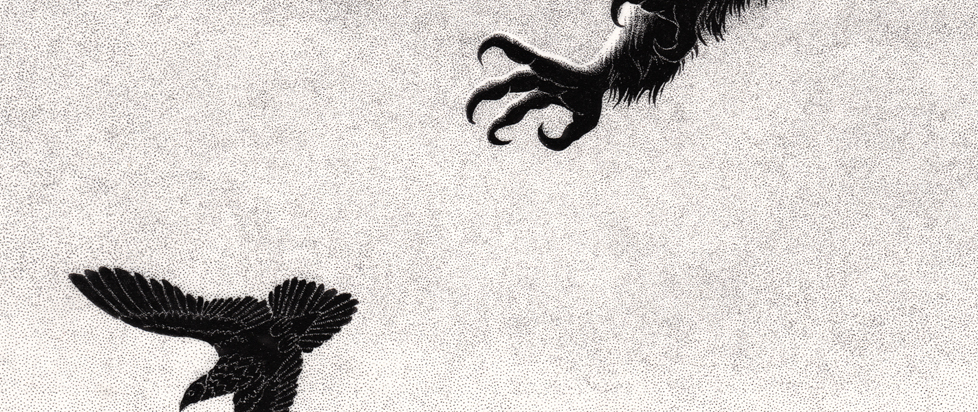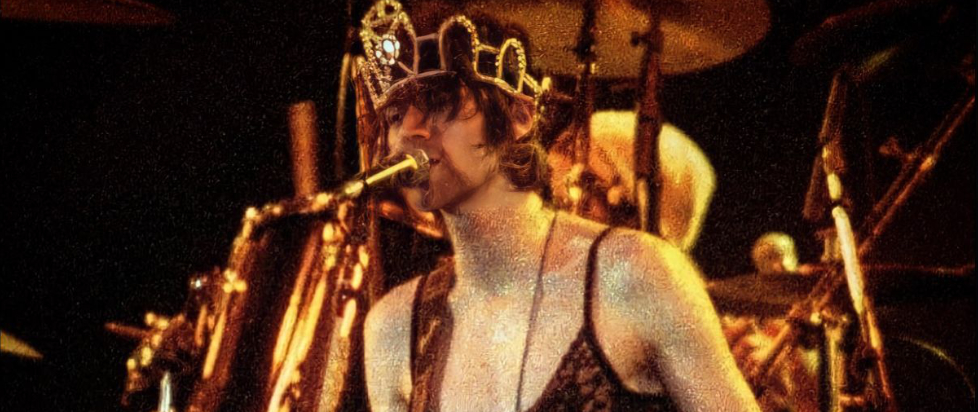
Don’t Hurt Girls When You Dance (Or Any Other Time)
This the cover story from Unwinnable Monthly #164. If you like what you see, grab the magazine for less than ten dollars, or subscribe and get all future magazines for half price.
———
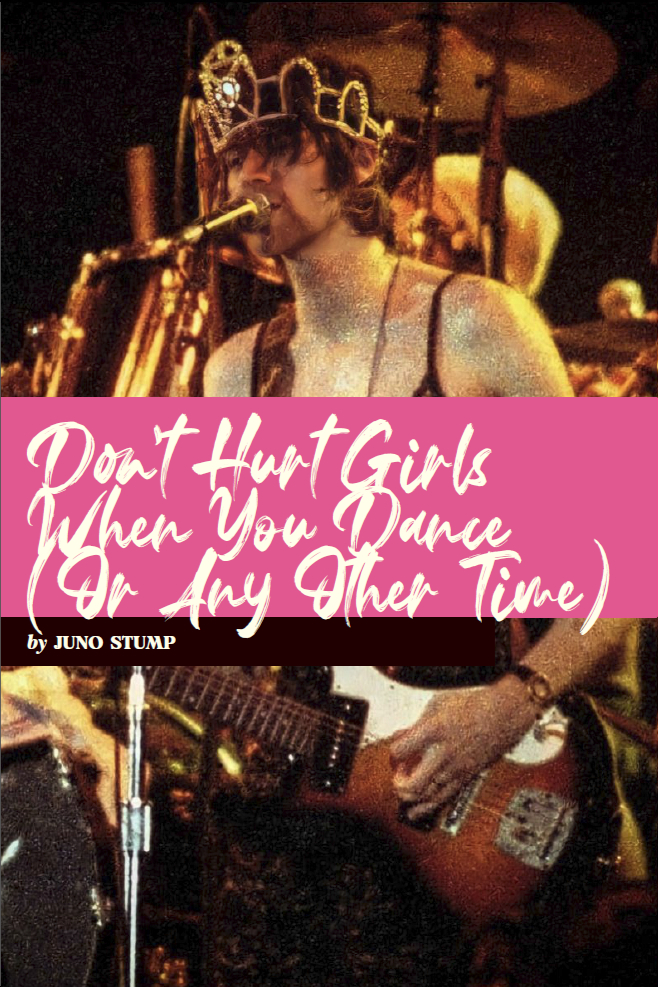
It’s been nearly thirty years since Nirvana’s MTV Unplugged in New York, a legendary live show that could only have come from Kurt Cobain. Though the concert series had provided a quieter, acoustic format for dozens of artists up to that point, including Paul McCartney and Pearl Jam, few have stood out or stood the test of time quite like the show put on by Nirvana.
Disagreements between MTV executives and Cobain started almost immediately. The 26-year-old rock star wanted Nirvana’s performance to be different than every other artist’s in the Unplugged series; MTV just wanted a quieter Nirvana show, maybe without the acoustic guitars being smashed at the end, too. The network still wanted a Nirvana concert, though Kurt’s vision was starting to sound a lot different than what they’d imagined. Nirvana’s rehearsals didn’t do much to calm anyone’s nerves either.
Biographic accounts from people around him at the time state that Kurt was “really, really nervous” and “terrified” as the time for the concert approached. Cobain had a vision of exactly what he wanted from the very beginning, but he was still an artist that wanted everything to go well.
Amy Finnerty, Alex Coletti and other MTV executives were hoping maybe Kurt Cobain and Eddie Vedder could duet onstage or finagle a Tori Amos appearance. They also wanted to hear lots of well-known Nirvana songs. Kurt was instead offering cover songs from the Meat Puppets, one of Kurt’s favorite bands and friends of his, with their long-haired guitar players joining Nirvana onstage, and bassist Krist Novoselic playing an accordion.

The band’s fourteen-song setlist did include original hit singles, such as “Come As You Are” and “All Apologies,” but six of the songs were covers, with five songs in total being about death. It wasn’t the show MTV or anyone in the audience was expecting, but it was exactly what Kurt had envisioned from the very beginning. When the show was still in the planning stages, Kurt was asked what he wanted the show to look like, the stage’s decorations and the atmosphere. He reportedly suggested stargazer lilies, black candles and a crystal chandelier to the MTV Unplugged producers. When producer Alex Coletti asked, “You mean like a funeral?” Cobain said that was exactly what he meant.
Kurt Cobain always maintained that many of his decisions were random and last minute. On one occasion, before playing for a radio station a year before Nevermind saw release, he had attested that the lyrics for the songs he was about to perform were written on the way to the radio station, “while driving with one foot.” But this just wasn’t true. It was just another piece of cool myth-making; contradictory rock-star lore that made Kurt Cobain sound cool.
According to Heavier than Heaven, Kurt’s official biography, written by Charles R. Cross, who had full support from Cobain’s estate and access to all of the musician’s journals, we know that Kurt Cobain had “obsessively planned every musical and career direction, writing ideas out in journals years before he executed them.”
Kurt Cobain claimed in interviews to “detest the exposure he’d gotten on MTV, yet he repeatedly called his managers to complain that the network didn’t play his videos nearly enough.”
From carefully orchestrating career moves while complaining about the success that came with it to all the pages in his journals dedicated to scribbling out exactly how the tracks on Nevermind should be sequenced (even though he’d casually, verbally provide it to record executives, as if he didn’t really care) and how it would all culminate and lead up to MTV Unplugged in New York, Nirvana’s death-scented and funeral-flower acoustic set, on November 18, 1993.
Nothing could have prepared anyone in that room – not even the rest of the performing band – for how well the show went. No one, not even Kurt, who planned every move in music he ever made, could have predicted just how magical the night would be. Classic Nirvana songs like “Dumb” and “Something in the Way” amazed the audience, with the original tunes being rearranged entirely in tempo and style for the format, which also included the addition of a cello that added a haunting edge to the already otherworldly show. Nothing can compare to the raw, emotionally-charged howl that rang out of Cobain’s voice during the band’s cover of Leadbelly’s “Where Did You Sleep Last Night?,” which closed out the night.

There’s a pause in the final vocal refrain where Kurt looks up, toward the lights, with his glowing, azure eyes and it’s like time stops. He takes a breath before continuing and it’s as if the band and everyone else in the hushed room takes a breath too, not knowing what to expect next. Kurt lets his breath out before charging back into the final chords, ending one of the most powerful performances of his life.
After finishing the song, Kurt looks to the crowd and smiles, offering up a polite, “Thank you,” before playfully pretending to smash his guitar, like he had done at so many shows before that night. He signs three autographs for fans and then quietly and very briefly argues with MTV executives, who are wanting an encore from Kurt and the band. Kurt insisted he was done.
Nirvana would play about forty more live shows after this night, but I believe Kurt Cobain intended for MTV Unplugged in New York to be his farewell as the rock star he had spent nearly a decade playing, wrapped into a final “fuck you” for anyone that never bothered to listen, to him or the band; at this point it was the same thing and he was done. It’s clear he was hurting but I don’t think he knew how to untangle, especially at this point. He kept playing shows and going through the motions, numbing the pain and healing as best as possible with drugs along the way, until he could no longer continue, ending his own life on April 5, 1994.
* * *
I don’t know if Kurt Cobain would still be here today if he had the ability to inject estrogen instead of heroin, but I know his journal pages carry the same pain as me – and so many other women like me.
I grew up in a small world, just like Kurt Cobain but decades later, surrounded by the same kinds of family and people, and with the same kind of sorrows and wishes for myself and the world around me. Nothing felt right to me and everything felt wrong, around me and within me.
“I love to play music, but something was not right. So I decided to medicate myself.” – Kurt Cobain, in an interview with Rolling Stone
Growing up trans, queer and closeted is hard for anyone, but it’s even harder when you already know your parents don’t love or accept you. This was the case for me. I tried to come out to my parents several times, as early as age four. My mom wouldn’t listen. My dad called me a “faggot.”
I already felt like I was on an alien planet, condemned to some strange, discarded flesh vessel, with just enough room for me in the corner, to waste away and think of another day, all while having the responsibility of inventing a stranger to keep me out of danger. All I could really do was not die while trying to hold on, with the hope that I would one day feel alive.
I didn’t have any men in my life that felt right or worthy as guardians or role models when I was growing up. My feelings then, at ages four through nine, were that all men felt like a hostile force on a planet that everyone but them was trapped on. But that changed one day, when I first heard Nirvana’s songs and Kurt Cobain’s words – and saw pictures of him and his swirling blue eyes that seemed to be home to familiar pain. I couldn’t explain it entirely at first. I just knew right away that this man was different. My asshole dad seemed to be the norm but Kurt Cobain was nothing like him.

I listened to all of Nirvana’s albums on repeat while reading about Kurt Cobain online, on every credible website I could find. It was sometime in 2002, I was 12 years old and I had found my first hyper-fixation, a man that was not only cool but cared about marginalized people and complained about the same things that bothered me. I clung to every word I found in interviews, with the lyrics of songs hitting my brain like pure rain, washing everything artificially manufactured away. I didn’t know how but he was the first person that felt familiar. The first person that seemed to have the same pain. I’d never met a woman or man like me, until I grew to learn about Kurt Cobain.
I disagreed with everyone that said Kurt’s lyrics were just random words, including him, who, in an interview suggested fans stop asking him for meaning, instead imploring fans to just listen to the band’s music and find their own meaning. I found that meaning but I think it also might have been his.
I spent so many nights crying because I felt empty, isolated, alone – like I wasn’t even alive.
I’d tried to forget I was trans and closeted, years after my parents had swiped away my fears and pain. It was impossible to forget but I tried nonetheless – like you would if you heard a major plot twist revealed in the theater bathroom, right before the movie you’re about to see, trying to ignore that overheard detail, that character’s death, that crucial part that affects everything – but it was stuck – stuck – stuck – stuck – stuck, just like a popcorn kernel behind your back-most tooth.
I wasn’t allowed to remove the popcorn kernel so I just tried not to think about it. I knew I was a girl. I knew I was trapped. My parents, God (???) and everyone I thought who would help me instead insisted everything was fine. I just needed to go to school, follow the rules, read my Bible, listen to God and only play videogames and music at a certain volume. Then, they assured me, everything would be okay. I would feel fine. I would feel great.
Nothing ever felt right and everything always felt wrong, but everyone said that was just me and not real. I just needed to stop acting weird. And then I would feel fine. Life kept moving, almost without me. I just wanted to feel okay. I just wanted to feel normal. I just wanted to feel right.
And many, many times I thought, if I could just make some changes to my body, then maybe I would feel okay. And if I wasn’t successful, and started to need the help of a doctor, my parents would have to take me in, and maybe then, a doctor would hear me and help me.
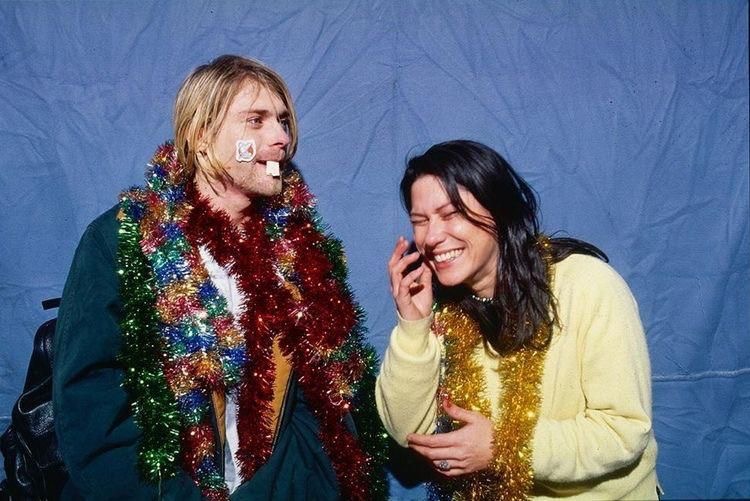
This cycle continued. Everything was mostly about survival, saying the right things to fit in for safety, while I dealt with my predicament. I didn’t know what else to do, outside of dying and trying again, which was something that always felt kind of, sort of on the table. I worried about God, mostly, but hoped He would understand. But I kept going, with the hope that I would eventually feel better, or at least a little okay.
Nothing really helped and nothing felt real, until that first day I heard Nirvana, when I was 12 years old. All of a sudden, I felt a little grounded, a little present. I wasn’t quite disassociating as much as I normally did. Not only did something finally feel real but it also felt familiar.
I immediately felt connected to nearly all of his songs and their lyrics, but especially tracks like “Dumb,” “Something in the Way,” “Sappy,” “Even in his Youth,” “Been a Son,” and “You Know You’re Right.”
I didn’t have all of the words to explain my predicament, yet. I tried to tell my parents with everything I had, from “God might be punishing me” to “My bones are wrong and are hurting me, inside and outside.” That only got me slurs and abuse. I didn’t have anything else, including anything resembling comfort or anything that encapsulated the pain I felt, until I heard the following words from “You Know You’re Right,” in the second verse of the last song Kurt ever recorded in a studio: “Let’s talk about someone else / Steaming soup begins to melt / Nothing really bothers her / She just wants to love himself”
Hearing those words against my heart, I knew that nothing was actually wrong with me – and that I just wanted to love and be myself. I held onto that as tightly as I could. The idea that I wasn’t broken was enough to know I wasn’t alone. And that was enough for now.
As the years passed, I dealt with my suffering by trying to numb everything with drugs and alcohol, much like Kurt Cobain did across much of his life. He had his music and tried not to feel. I had videogames and did the same with my feelings. My popcorn kernel.
* * *
“No true talent is fully organic, yet the obviously superior talented have not only control of study but that extra special, little gift at birth – fueled by passion. A built in, totally spiritual, unexplainable, new age, fuckin’, cosmic energy burning love for passion.” – Journals, page 174
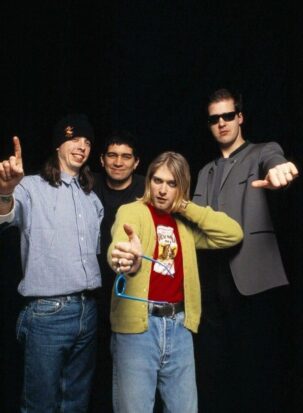
Kurt Cobain’s Journals, released a few months after the release of “You Know You’re Right” in 2002, containing chronologically organized pages from the musician’s personal writings and notes. No single book could hold all of his jottings; he was always writing and filled up hundreds of notebooks in his life. Journals collected notes from the Nirvana years, giving fans a glimpse into Cobain’s mind during his time in the spotlight.
Inside the book are nearly 300 pages of doodles, scribbles, rough drafts of letters to friends, important phone numbers, answers to hypothetical interviews, comic strips, song lyric drafts and concept art for album covers, but also personal details about how he felt in his body, growing up and as an adult and how even with the fame, success, money and everything else, he still didn’t feel right.
And that . . . helped me, alongside his music, as I went through the wrong puberty. As my bones grew, they hurt really bad too, just like Kurt, and even though he wasn’t here, knowing at least one other person had known what I felt like, tormented and suffering inside the walls of a stranger’s fleshy prison, helped me a lot.
I didn’t have all the language at this age. It was 2003, 2004 and 2005, in my small, Michigan farm town, and words like ‘trans’ and ‘gender non-conforming’ were just . . . not around me. I had Bible verses and whatever my public school taught me.
But I always had my suffering. I just didn’t know how else to articulate it at this point. My parents already made me feel unsafe, traumatizing me for years, so telling anyone else was beyond me at that point.
I never did let go of that popcorn kernel that was stuck in my teeth. I just tried not to pick at it.
And I think that’s what Kurt did too.
“I wish there was someone I could ask for advice. Someone who wouldn’t make me feel like a creep for spilling my guts and trying to explain all the insecurities I’ve always had for, oh, about 25 years now.” – Kurt Cobain, Journals, page 189
* * *
There’s only so much you can do when you never feel right or like yourself. All you can ever feel is isolated. We may never know for sure, but I think there’s a reason that so many trans women have been able to identify with Kurt Cobain’s joy, pain and suffering, so strongly.
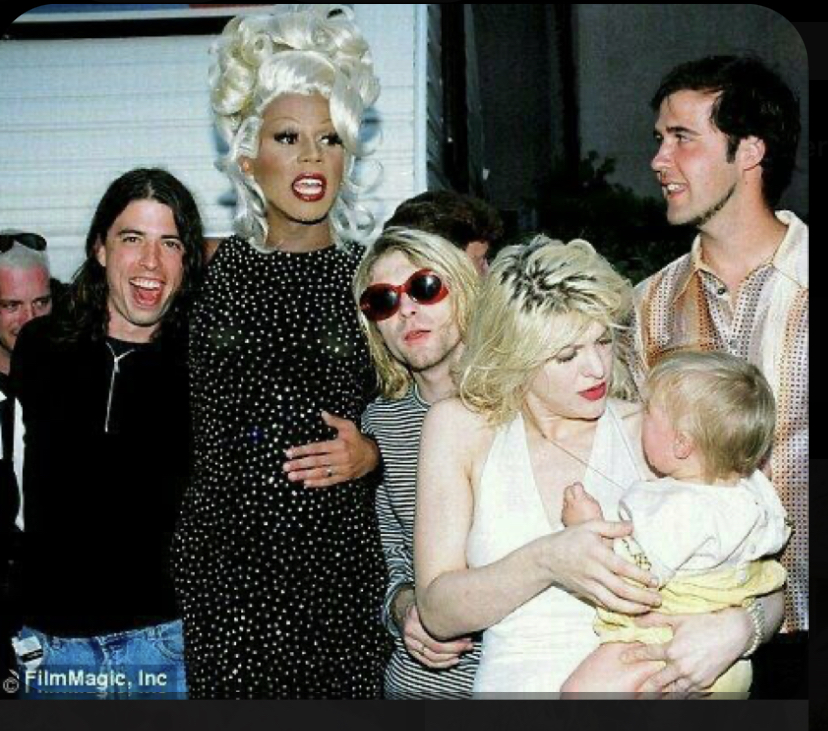
Kurt Cobain suffered from a stomach problem his entire life, to the point that it agonized him almost daily. Despite attempts to get diagnosed by several doctors throughout his life, especially in his later years, he was never able to cure whatever ailed him. He tried changing his diet. He tried everything doctors suggested, but it never went away, only fading occasionally, during intermittent instances in his life. A few women in Kurt’s family, including his mother, were briefly affected by debilitating stomach issues, but it always eventually subsided and calmed.
Kurt’s stomach pain was the subject of many pages in his notebooks and came up in plenty of interviews. It’s possible that this pain came from how Kurt felt about himself. Many trans people experience an assortment of issues and symptoms from dysphoria, including physical pain, especially while still closeted.
Kurt also hated his body, which affected the way he dressed in nearly every situation. This included rarely wearing shorts, hating how his knees and legs looked, unless the temperature was particularly high. He even wore long johns under jeans to the beach on more than one occasion. He complained about his body often, in his journals and to those around him.
“Such an easy thing – such a shiny ring
Let me grow some breasts – I cheated on my test
I don’t have the right – to say what’s on your mind
You’re not allowed to sing – all apologies”– Kurt Cobain, Journals, page 212, early lyrics for ‘All Apologies’
Seeing another human being grappling with what might have been body dysphoria wasn’t something I had ever experienced before. I didn’t even know there was a word for dysphoria when I was a teenager. But here was someone else that was also upset about their body. Someone else that felt trapped. That thread of questioning and torment helped me know that I wasn’t alone.
It wasn’t in the songs, but seeing this in his journals, in his thoughts and with penmanship that looked pained and frustrated . . . it couldn’t be nothing.
Kurt Cobain would also often dress in drag, which included dresses and other female-coded clothing and makeup on many occasions, including for photo shoots and concerts. There were other rock stars, even Dave Grohl, Krist Novoselic and Pat Smear in the band, who had worn or would wear eyeliner and lipstick, but Kurt just always looked much more comfortable, happy even, when dressing in drag and/or wearing makeup. It was even commented on by those who interviewed him and captured him on film, though I don’t think they saw it in the same way as me.
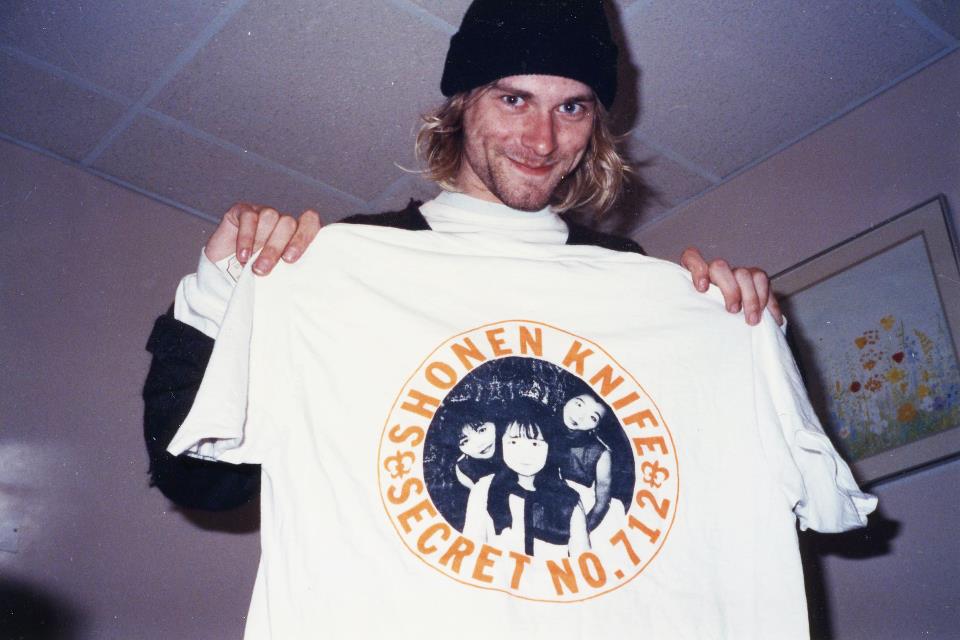
Kurt consistently spoke highly of female artists, such as The Breeders, Shonen Knife and Bikini Kill, throughout his life. Nirvana would tour with many of these bands, including Calamity Jane in 1992. During that tour, in Buenos Aires, Argentina, Kurt decided to sabotage his own band’s performance after the crowd booed Calamity Jane off the stage. He did this by repeatedly playing the opening notes for “Smells like Teen Spirit” throughout the show before stopping and changing to a different song, then refusing to play it and other requests from the crowd.
Kurt always showed up for women, including in his political beliefs, even playing charity and benefit concerts that helped rape victims and empowered women. He was also outspoken, especially for his time, for how much women were oppressed by society. This extended to queer rights, which Cobain openly supported, even going as far as saying he wished he was gay “just to piss off the homophobes.”
Kurt provided just one interview for Nirvana’s 1992 release, Incesticide, a compilation album of outtakes and b-sides, and it was to The Advocate, a gay and lesbian publication. Kurt’s support for queer rights and the band’s opposition to racists and homophobes is something that’s made clear in the piece.
Kurt loved performing music despite all the suffering he endured. He would often find joy and confidence from women around him, choosing to surround himself with feminist music and ideals. These punk rock ideals and Kurt’s proximity of closeness and respect for riot grrrl bands, such as Bikini Kill, only served to amplify Kurt’s contempt for macho men and male-dominated culture, which could be heard in interviews, read in album liner notes, and even during many of his songs, including “Very Ape”, “Mr. Moustache”, and “Territorial Pissings.” He was gender non-conforming and constantly lifted women up, despite dealing with the clear-as-day body dysphoria, which is visible in nearly every photograph of Kurt Cobain.
There’s just so much evidence to suggest that Kurt Cobain was a closeted trans woman that did the best they could, with the circumstances and trauma they had, while jamming through their hyper-fixation and trying to make the world a better place for other marginalized people, right up until the very end.
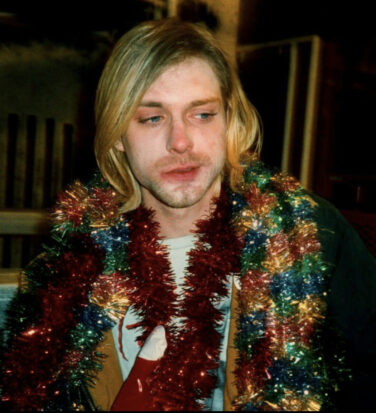
The LGBTQIA+ community and its allies typically try to avoid diagnosing people, especially if they’re not here to speak up for themselves. It’s part of listening to people when they introduce themselves and tell you who they are. But Kurt Cobain also has a page in his journals that reads, “Don’t read my diary when I’m gone. OK, I’m going to work now. When you wake up this morning, please read my diary. Look through my things, and figure me out.”
I think he would be okay with a girl like me finding catharsis in his pain, seeing his struggles and taking something good from it. I think it would make him proud that a dyke like me was able to hit ages 16, 20 and 30 with his help. And while he may be the only one that truly knows if he was a closeted, trans girl, I know if he was here, he would be happy to learn that an untold number of trans women, cis women, non-binary people, queer people and gender non-conforming people have found their days easier because of things he wrote, sang and said.
Kurt Cobain should have had the chance to grow some breasts. I’d rather have that than “All Apologies.”
A world with trans rights would make less pain for people like Kurt Cobain, who was at the very least gender non-conforming, regardless of how you want to see him.
We should all be supporting laws and building communities that support people from all gender identities and sexual orientations. The anti-trans and queerphobic legislation sweeping across the nation can only lead to more people feeling isolated and alienated like Kurt Cobain. And if he was here today, he’d say something cool, like “God is gay” or “May women rule the world,” but he’d also most certainly say “trans rights.”
———
Juno Stump is a woman and writer that loves rain, pretty words, and videogames. For too many words on those and more, follow her on Twitter @juno_stump.



